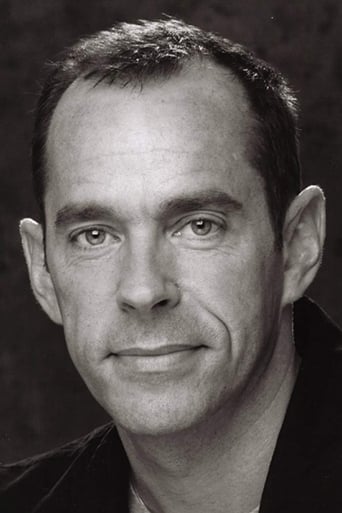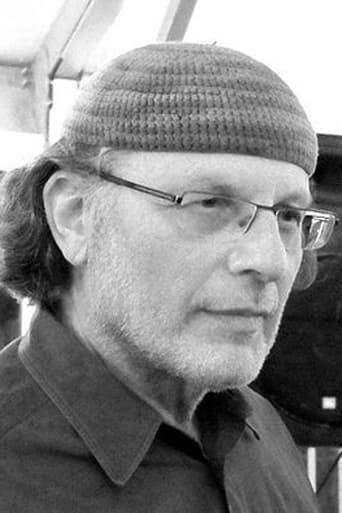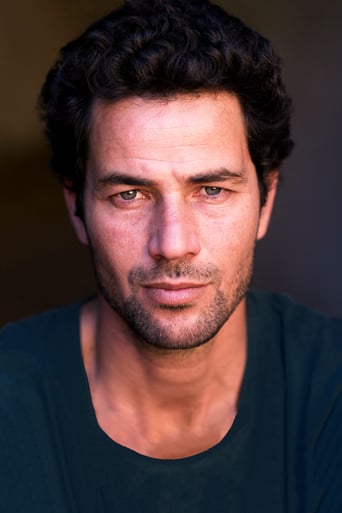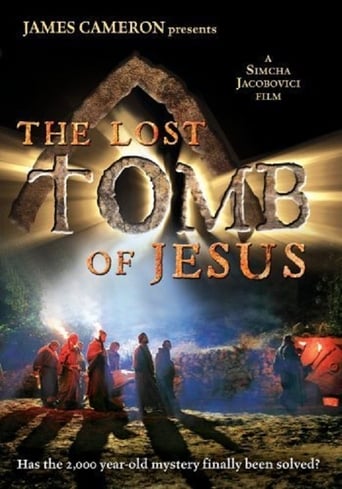
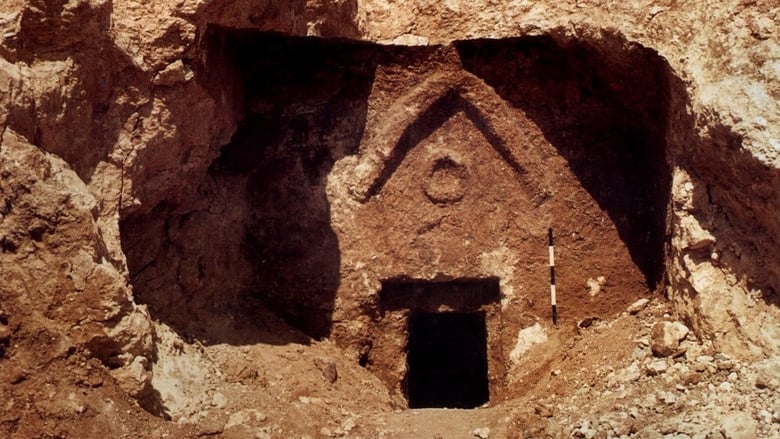
The Lost Tomb Of Jesus (2007)
Academy Award winning director James Cameron and Emmy Award winning investigative journalist Simcha Jacobovici have joined forces and produced a documentary film claiming to have identified the tomb and physical remains of Jesus of Nazareth.
Watch Trailer
Cast
Reviews
Admirable film.
Although I seem to have had higher expectations than I thought, the movie is super entertaining.
This is one of the best movies I’ve seen in a very long time. You have to go and see this on the big screen.
The biggest problem with this movie is it’s a little better than you think it might be, which somehow makes it worse. As in, it takes itself a bit too seriously, which makes most of the movie feel kind of dull.
The theatrics and the drama included in the movie is fantastic, but the facts and the research is far from solid. When quoting Dr. Bovon, where the documentary tries to establish a connection to Mary Magdalene from Mariamene, Dr. Bovon later clarifies it should be used for literary purposes (ie: fables of that time) not for a historical figure. In fact he states, he does NOT believe the Mariamene ossuary in Talpiot is Mary Magdalene. He further comments on his public letter, that he was not informed that his words would be used for this documentary but rather for information regarding Acts of Philip (a literary work in the 4th century).So what we have here is a director that took one clip for a 4th century Acts of Philip fantasy and used it specifically to support a 1st century ossuary inscription. A very sad stretch and Dr. Bovon calls the Jesus/Mary Magdalene connection as "science fiction" -- as this documentary should be rightly labeled.
This glorified discovery channel documentary, part biblical study, part treasure hunt, all misappropriated, might have sat well in it's television origins but falls flat as a feature film. Right from first glance of it's cheesy looking cover art, one may cast doubts upon the integrity behind this serious subject, shown on front case relegating the search for Jesus's tomb to a generic action font that looks more National Treasure or Tomb Raider then any informed debate and examination of the historical burial site should. Such is the underhanded way in which the entire proceedings revolve.More curious child then worthy researcher, Simcha Jacobovici's explorations come across as self-indulgent while his research comes across as manipulative. For all the fascinating revelations this filmmaker tries to impart on his viewers through supposed evidence, a flood of repetitious statements reiterating the same research and findings over and over proves The Lost Tomb of Jesus has very little information to back up the bloated, albeit entrancing claims. What this amounts to is a very frustrating attempt to beat the audience over the head with the same small factual evidence in support of this tomb's authenticity, which ironically detracts from it. While tirelessly linking together many of these mini-coffins found together to support the Jesus of Nazareth theory, this research forsakes a well-rounded approach to continuously pursue this romanticized archeologist's singular obsession. There may be some impressive factual data which helps shed some light on many traditional dogmatic Christian-held beliefs, but essentially the shady nature of this project made it come across as merely an exploitation piece, financed at a time when The Da Vinci Code was all the rage.In the end, the cheesy cover art was right. Despite my appreciation for documentary form, The Lost Tomb of Jesus takes an always interesting topic and turns it into overlong and unvaried geriatric adventure hunt, substituting any relevance and sacredness for the uninspired motivations behind this team. By the time these tomb raiders have finished their explorations, reluctantly having to stop research because of social demands, viewers are left with the sense the director was insistent on forging this mystery whether it was there to begin with or not. There are a few genuinely potent moments where the halls of history come marching through this documentary in unassuming ways, but all the decoding, exploring, and theorizing in the world still left this misguided vanity piece in an uneasy void of apathetic response.
Simcha Jacobovici, the reporter of 'The Naked Archaeologist' fame, has produced an excellent documentary here. However, I agree with the gist of the two previous comments that it is in dire need of a sequel and of more scholarly comments. That said, it says all that can be said in a 103 minute long documentary (not counting the publicity breaks). I disagree with one of the previous two comments about the time that has allegedly been 'wasted' showing us the difficulties of archaeological research in Israel today, an activity that has become heavily politicized. In my opinion, Jacobovici has come closer than anyone else that I know of to the truth of the matter. In fact, in this documentary, he has come achingly close to it. What he, his detractors and everyone else have missed is one central truth that I think I have discovered and that I intend to publish shortly after more than twenty years of research. The truth is amazingly simple and it explains the many so-called contradictions found in the Bible. The truth and Jacobovici's documentary are mutually-compatible but that truth, had it been known to Jacobovici, would have changed some of the documentary's implied conclusions, but not the raw facts that it contains. Highly recommended. I recommend that the readers watch the documentary and try to guess what that missed truth is.
As pointed out by the academicians in the ensuing discussion hosted by Ted Koppel, a heavy hitter when it comes to journalism, "The Lost Tomb of Jesus" is in desperate need of more scholarship. That said, I found it a compelling and interesting documentary, slightly better than the Discovery Channel's average delving into historical and archaeological topics. I do also disagree with one of the guest academicians who said that the documentary was "archaeological porn", almost hinting that since he was not involved in the project that it had no merit. The documentary I think certainly has merit. They did use a Harvard professor to translate inscriptions on the ossuaries and a statistician from the University of Toronto to speculate on the likelihood of the tomb being that of the family of Jesus of Nazareth.The documentary's obvious weakness is in its lack of scholarly commentary. The few academicians used in the documentary were not involved in any kind of analysis of the archaeological finds. They were primarily used more for the expertise in their respective fields. So the question is what scholarly commentary was lacking? A good comparison is the Frontline documentary "From Jesus to Christ". In "Jesus to Christ" about ten scholars representing renowned research institutions from around the country were used to tell the story of what is regarded as factual about the life of Jesus and his early followers. In "Tomb" the filmmakers were essentially their own commentators. Another difference between the two documentaries was the amount of time devoted to scholarship. "Jesus to Christ" was a 4-hour documentary in 3 parts with 60% or more of its screen time devoted to scholarly commentary. "Tomb" was probably closer to 1 1/2 hours when consideration is given to commercial breaks with very little scholarly analysis. A lot of "Tomb"'s time was devoted to re-enactment scenes and scenes devoted to the logistics of getting under a 25-year-old apartment complex. These two elements I found less interesting.The film almost begs for a sequel. Scholars and other academicians who understand the implications of archaeological finds need to analyze and critique the artifacts of the documentary. Not all scholars will ever agree about the implications. The filmmakers last point in the ensuing discussion was probably the most important: that he hoped that the film would lead to more discussion and scholarship.
